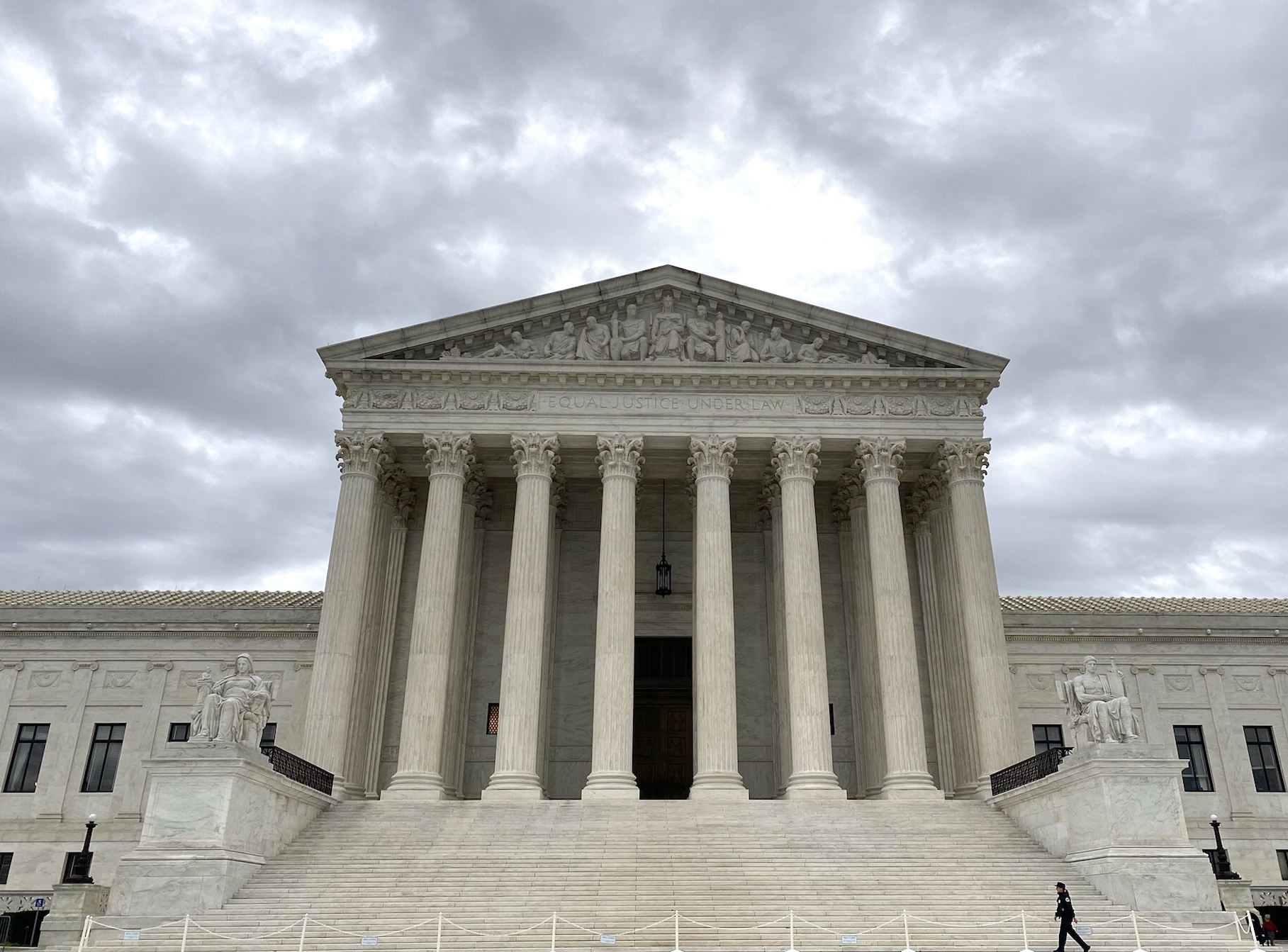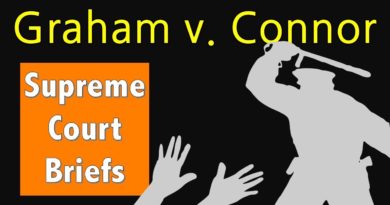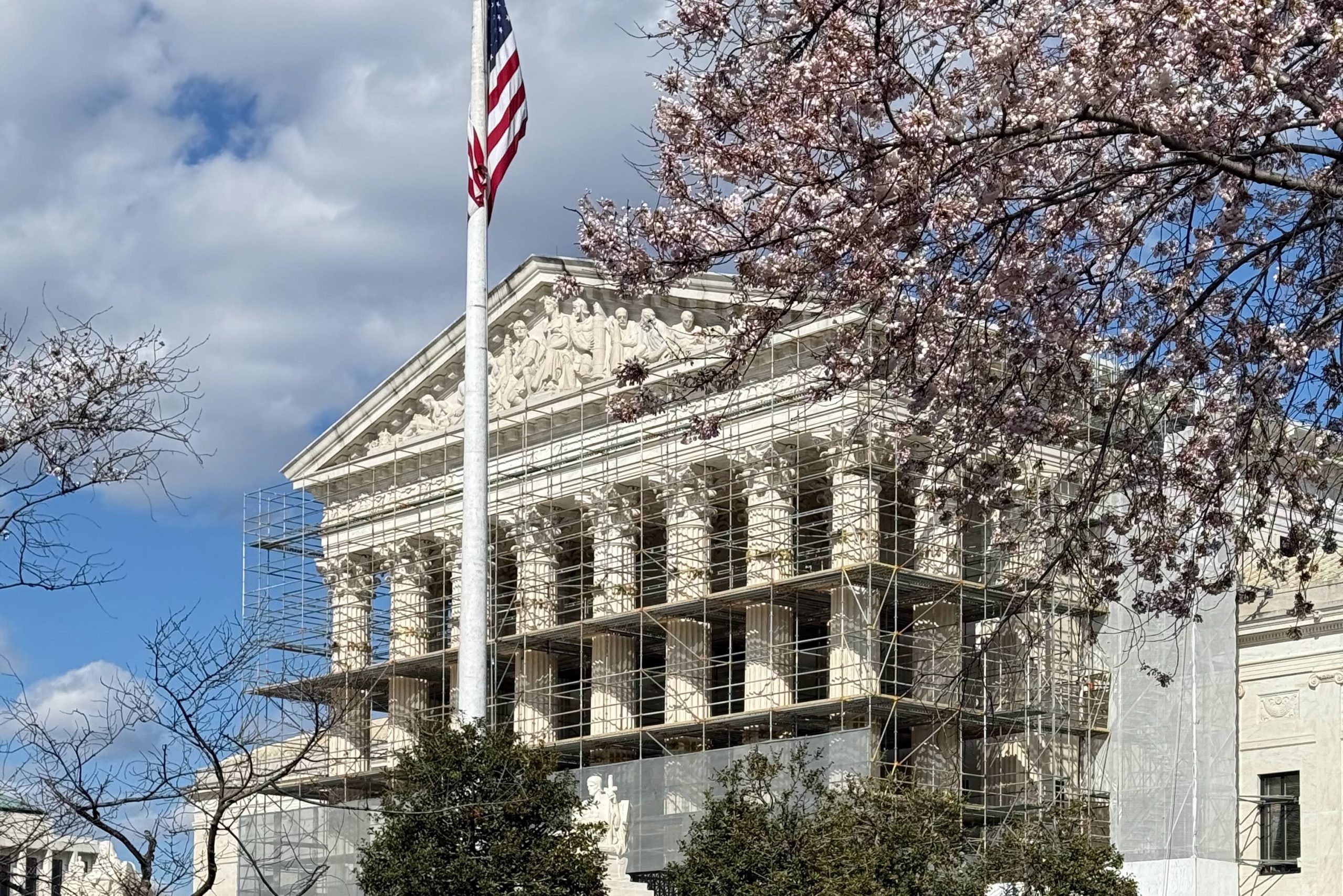Arizona asks court to approve “Kafkaesque” treatment of due-process claim from man on death row
ARGUMENT ANALYSIS
on Nov 2, 2022
at 6:42 pm
During Tuesday’s oral argument in Cruz v. Arizona, the justices considered whether a state procedural rule prevents John Cruz, who was sentenced to death, from obtaining relief on his federal due-process claim in state post-conviction. To answer this question, the court must determine if Arizona Rule of Criminal Procedure 32.1(g) provides an adequate and independent state-law ground for refusing to recognize Cruz’s federal right. Rule 32.1(g) is a procedural mechanism that allows Arizona petitioners to challenge their conviction or sentence when there is a “significant change in the law” that would impact their case. The justices’ questions explored two main areas: state authority to limit post-conviction review; and Arizona’s determination of a “significant change in the law” for 32.1(g) purposes.
As background, a Pima County jury convicted Cruz of capital murder in 2005. During his sentencing hearing, Cruz requested to inform the jury that if they spared him the death penalty, he would be ineligible for parole. In doing so, he referenced a 1994 Supreme Court case, Simmons v. South Carolina, which held that jurors must receive such information to rebut an inference that the defendant posed a danger in the future. The court held that such information was part of the defendant’s constitutional right to due process. However, in line with Arizona’s view of Simmons, Cruz’s trial judge refused his request. The jury returned a death sentence. Cruz unsuccessfully appealed his Simmons claim in state post-conviction proceedings. Then, in 2016, when the Supreme Court decided Lynch v. Arizona, instructing Arizona courts to apply Simmons, Cruz renewed his appeal. This time, he pointed to Rule 32.1(g), explaining that Lynch constituted a significant change in the law.
Justice Clarence Thomas posed the first question, asking Cruz’s lawyer, Neal Katyal, whether there was even a federal issue for the court to decide given that Arizona was simply applying state procedural law. Although Katyal quickly addressed the issue, the question signaled Thomas’s inclination to rule against the petitioner. In a somewhat similar vein, Chief Justice John Roberts denied that Arizona was acting with any hostility in applying its procedural rule, and mused that Arizona was simply limiting post-conviction review, which was perfectly within the state’s purview. Justice Samuel Alito then interrupted Katyal’s response to the chief justice with a hypothetical. When Katyal pointed to a deficiency in Alito’s speculative scenario, the justice interjected: “I meant to make that part of my hypothetical too.” Rather than clarify the issue before the court, the opening questions, including inquiries from Justice Neil Gorsuch, communicated the justices’ unwillingness to engage with the relatively straightforward facts of the case: the appropriateness of Arizona relying on a state law to prevent Cruz from seeking reversal of a death sentence that violates federal law.
Alito picked up on the chief justice’s musings, asking whether there was anything wrong with a state limiting its post-conviction review process. Katyal agreed that it was acceptable for states to limit post-conviction, but that once the state creates a forum for such review, it must do so even-handedly and with predictability and notice to defendants. Arizona’s interpretation of Rule 32.1(g) fails to do so, Katyal said. Before his allotted time concluded, Justice Sonia Sotomayor invited Katyal to address why the views reflected in her more conservative colleagues’ questions were wrong. The prompt enabled Katyal to highlight that Arizona’s interpretation of Rule 32.1(g) in Cruz’s case was novel, which Supreme Court precedent specifically prohibits.
Following brief opening remarks from Arizona’s attorney, Joseph Kanefield, Thomas again asked the first question. He wanted to know whether Arizona would consider the holding in Lynch “a significant” change if the Arizona Supreme Court had decided it. When Kanefield quickly and confidently responded “no,” despite conceding that he had no examples to support his answer, Justice Ketanji Brown Jackson interjected, forcing counsel to backtrack. Kanefield tried to distinguish what seemed, by any measure, a change in the law between Arizona’s treatment of Simmons after Lynch, as not constituting “a transformative event.” Justice Elena Kagan wasn’t having any of it. “Maybe I’m just being simple-minded about this,” she said, “but at point A, Simmons was not operative in Arizona, and in point B, Simmons was operative in [Arizona].” When Kanefield again tried to downplay the degree to which the law changed, Kagan chimed in with plain language: “The right is not there to be invoked. Now the right is there to be invoked … That’s as big a change of the law that there is.”
The three liberal justices — Sotomayor, Kagan, and Jackson — appeared squarely on board with Cruz’s arguments. When Sotomayor asked for one example of a time in which the U.S. Supreme Court or the Arizona high court overruled its precedent (which would constitute a significant change in the law), and Arizona declined to apply Rule 32.1(g), Kanefield could not produce one. At another point, Kagan quipped that “Kafka would have loved” Arizona’s treatment of Cruz’s federal claim, which the state has batted down no matter how and when he raised it.
Comments from Justices Brett Kavanaugh and Amy Coney Barrett seemed to indicate that they too may be receptive to Cruz’s arguments. Barrett described Kanefield’s efforts to downplay the significance of the change in the law as “kind of artificial” and “hair splitting.” Toward the end of argument, Kavanaugh noted that other states had declined to file friend-of-the-court briefs in support of Arizona’s position.
Regarding other states, Jackson voiced concern about what a decision for Arizona could communicate: “It [would give] other states … a roadmap for defying this court’s criminal law decisions.” When Kanefield attempted to assuage Jackson’s fears, Kagan clapped back. She pointed to a “shock[ing]” footnote in Arizona’s brief, stating that “the State maintains that Lynch was wrongly decided.” Given the footnote, Kagan accused Arizona of “thumbing [its] nose” at the court. Alito attempted to salvage Arizona’s arguments, summarizing them in a comment, rather than a question. After a brief rebuttal from Katyal, the chief justice thanked the lawyers.
If Cruz prevails, Arizona would be required to apply Simmons (via Lynch) to his case and to the cases of approximately 30 other death-sentenced petitioners in Arizona. Applying Simmons would likely require Arizona to grant each of them a new sentencing hearing in which jurors would learn about their parole-ineligibility. However, a victory for Cruz means garnering support from at least two of the conversative justices, which is by no means a given. Regardless of the outcome, the court’s decision will likely adhere to the narrow facts of Cruz’s case.






